Research Team
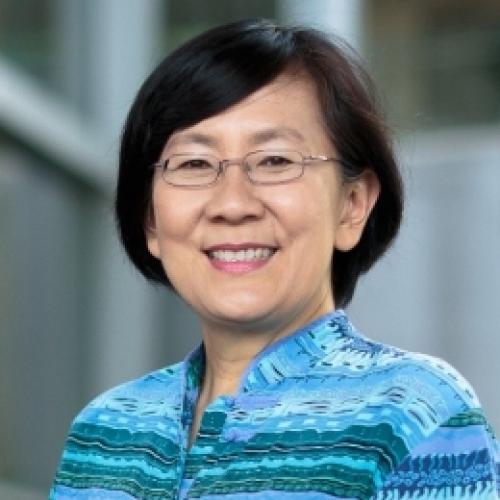
Professor Straughan’s research interests center around the sociology of family and medical sociology. She is the Director and Principal Investigator at the Centre for Research on Successful Ageing (ROSA). Separately, she leads a project investigating the environmental risk factors in childhood obesity. She was also the Principal Investigator of a recently concluded project on Successful Ageing in Singapore, Seoul and Shanghai which involved multiple institutions and a multidisciplinary team. Professor Straughan serves as Consultant on numerous projects commissioned by various government agencies, including the Marriage and Parenthood Survey 2016 & 2012 commissioned by the National Population and Talent Division. She has published in both sociology and medical journals, like Social Science and Medicine, Cancer, and Cancer Causes and Control. Her books include Marriage Dissolution in Singapore: Revisiting Family Values and Ideology in Marriage, and Ultra-Low Fertility in Pacific Asia: Trends, Causes and Policy Issue (with Gavin Jones and Angelique Chan).
Professor Straughan was a Nominated Member of Parliament from 2009 to 2011, during which she argued for work-life balance and the nurture of a more pro-family social environment. Her community involvement includes serving on the Child and Youth Health Task Force, and the Infectious Disease Research Advisory Group (both at the Ministry of Health).
She is happily married to an Applied Mathematician, and they have 2 sons.
Email: paulints@smu.edu.sg
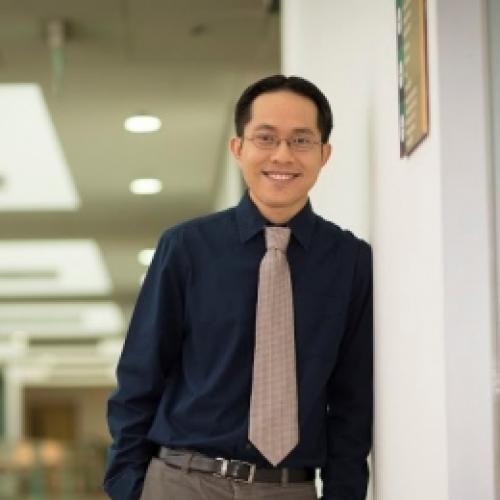
Will Tov is an Associate Professor of Psychology at Singapore Management University. He completed his doctorate in social and personality psychology at the University of Illinois at Urbana-Champaign. His research focuses on the multilevel processes that underlie well-being. At the macro-level, he is interested in cultural similarities and differences in well-being as well as the societal-level conditions associated with well-being. At the micro-level, he examines daily fluctuations in emotion, satisfaction, and meaning—and how these fluctuations are influenced by positive personality traits, memory, and social interactions. He also examines the expression of emotion on social media and the veracity of such expressions as indicators of well-being. At SMU, he has received recognition for his dedication to teaching excellence and was awarded an innovative teaching award. He has also been a recipient of the Lee Kong Chian Fellowship at SMU. His work has been published in the Journal of Personality and Social Psychology, Journal of Cross-Cultural Psychology, and the Journal of Personality.
Email: williamtov@smu.edu.sg

Seonghoon Kim is Associate Professor of Economics and Lee Kong Chian Fellow at Singapore Management University and a Research Affiliate at the Institute for the Study of Labor (IZA), Germany. His research interests focus on health economics, labour economics, and public economics. Dr. Kim's current research project examines the causal impacts of income on health and economic outcomes, the impacts of COVID-19 on consumption, employment, and health. He has also published several articles in journals such as Review of Economics and Statistics, Journal of Urban Economics, and Journal of Development Economics. He teaches Health Economics at the advanced undergraduate and Ph.D. levels and holds a Ph.D. in Economics from the Ohio State University.
Email : seonghoonkim@smu.edu.sg
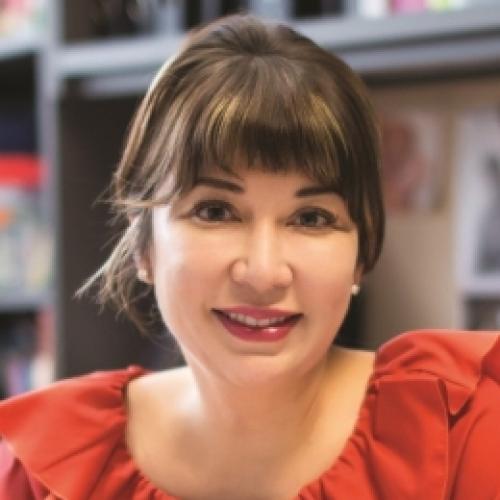
Dr. Angelique Chan holds joint appointments as Associate Professor in the Signature Program in Health Services & Systems Research, Duke-NUS Medical School and the Department of Sociology, NUS. She is the Inaugural Executive Director of the Centre for Ageing Research & Education (CARE, Duke-NUS). Dr Chan obtained her undergraduate degree, BA (Sociology) from Reed College, her PhD (Sociology) from the University of California at Los Angeles as a Rockefeller Foundation PhD fellowship awardee, and a US National Institute of Aging Post-Doctoral degree at the University of Michigan.
Dr. Chan‘s current research examines disability transitions, mortality, and the effects of social support on health, caregiver burden, and use of long-term care services. She has published widely on aging issues in leading international journals including the Journal of American Geriatrics Society, Journal of Aging and Health, and Journal of Gerontology Series B: Social Sciences and book chapters. She is co-author of a book titled Ageing in Singapore: Service Needs & the State (Routledge 2006) and Co-editor of Ultra-low Fertility in Pacific Asia: Trends, Causes and Policy Issues (Routledge 2009).
Her international work includes working with collaborators from Japan and USA on caregiving, work and retirement, and disability transitions. She has consulted for Singapore Ministry of Health, Ministry of Social and Family Development, Agency for Integrated Health, the United Nations, Temasek Foundation and the World Bank. She sits on various national committees related to ageing research and education.
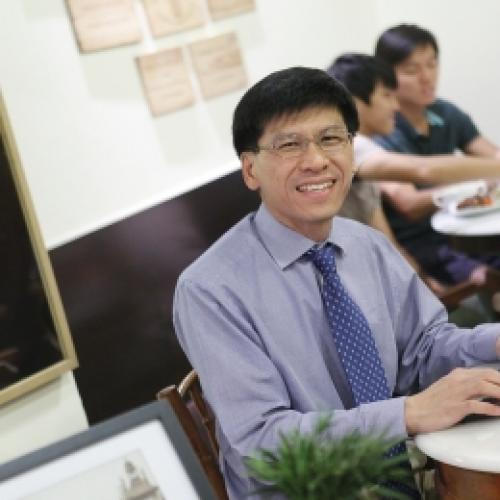
Denis Heng-Yan Leung is Professor of Statistics in the School of Economics at Singapore Management University (SMU). He has a research programme in statistical theory and methods related to survey data. He has a D.Phil from the University of Oxford. He has extensive experience in analysing health-related data, having been on the faculty of the Department of Biostatistics at the Memorial Sloan Kettering Cancer Centre in New York between 1993 and 2001.
Email: denisleung@smu.edu.sg
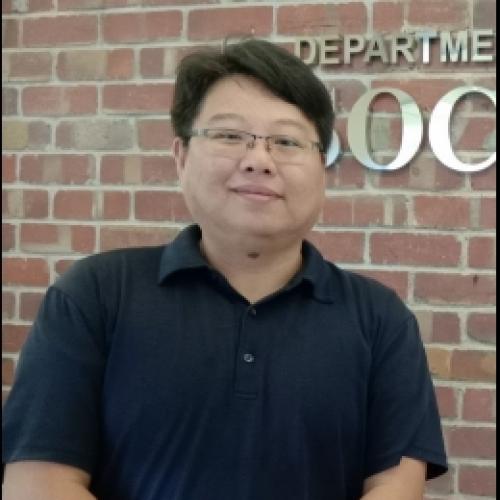
Feng Qiushi received his doctoral degree from Duke University and is an Associate Professor in the Department of Sociology, National University of Singapore (NUS). He is Academic Convenor of Global Studies Program, Academic Convenor of Health and Social Sciences Program, and Deputy Director of Centre for Family and Population Research (CFPR) in NUS. His research fields are aging and health, population studies, and economic sociology. With research themes mostly focusing on health and economy, he is interested to try different methods in research practice, such as multivariate statistics, simulation-based projection, experiment, comparative and historical approaches, as well as ethnographic approaches. Accordingly, he has been teaching social research methods for more than a decade. He publishes extensively, and is currently the Associate Editor of Asian Population Studies and BMC Geriatrics. His research has been supported by the United Nations Population Fund (UNPF), Singapore Ministry of Education (MOE), and the National Medical Research Council (NMRC). He is currently leading a MOE Tier-2 project, Lifelong Education for Aging Productively (LEAP) in Singapore (www.fas.nus.edu.sg/cfpr/research/leap.html).
Email: socfq@nus.edu.sg
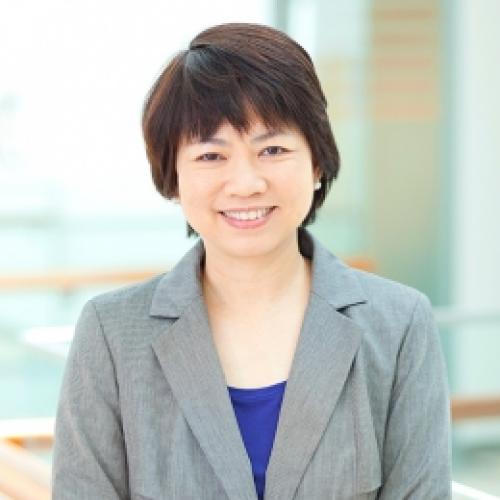
Phang Sock Yong is the Celia Moh Chair Professor of Economics at Singapore Management University (SMU). She is a Co-Principal Investigator at the Centre for Research on Successful Ageing (ROSA) and is also the Programme Director for SMU’s “Growing Infrastructure” programme. Professor Phang researches in the areas of housing and infrastructure economics, focusing on the impacts of government policies on these sectors. She previously served as Vice Provost (Faculty Matters), Interim Dean of the School of Economics and also Chair of the Department of Economics at SMU. Professor Phang has held extensive external appointments and currently serves as board member of the Energy Market Authority and is also a member of the Board of Trustees of ISEAS-Yusof Ishak Institute.
Email: syphang@smu.edu.sg
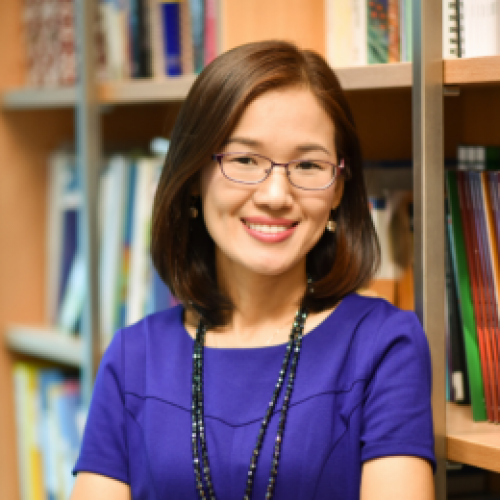
Hwajin Yang is Associate Professor of Psychology in the School of Social Sciences at Singapore Management University. She obtained her PhD in Psychology from Cornell University (NY, USA) in 2005.
She has established a strong research programme that focuses on the intricate relations of executive functions (EF) to many aspects of our adaptive functioning such as cognitive processing, language development, emotional experiences, psychological well-being, decision-making, mental health, academic success, and aging. She has published many empirical research articles in top-tier and prestigious journals in Aging, Cognitive, Developmental, Educational, and Social Psychology. She is currently serving as the associate editor of Frontiers in Developmental Psychology.
Email: hjyang@smu.edu.sg
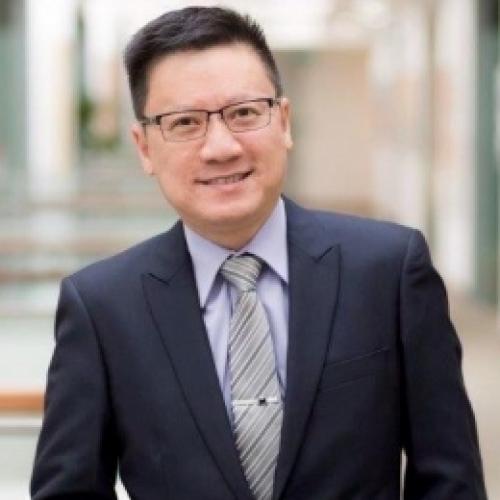
David Chan is Professor of Psychology and Director of the Behavioural Sciences Institute at Singapore Management University. His works, published in top psychology, management and methods journals, have been cited over 12,000 times in various disciplines. He has received several international awards such as the Scientist-Practitioner Presidential Recognition Award and William Owen Scholarly Achievement Award, and he is the first non-American to receive the Distinguished Early Career Contributions Award. He has served as Editor or board member of numerous international journals. He is the first scientist in the world to receive Elected Fellow status of all six international psychological organizations. In Singapore, he serves on numerous national councils, taskforces, scientific panels, international advisory panels and boards of directors. He is recipient of several national awards for his contributions. He writes op-eds in a By-Invitation column in The Straits Times and he is consultant to Channel NewsAsia on several documentary series.
Email: davidchan@smu.edu.sg
Professor Chan's Curriculum Vitae can be accessed at the following page: View Link
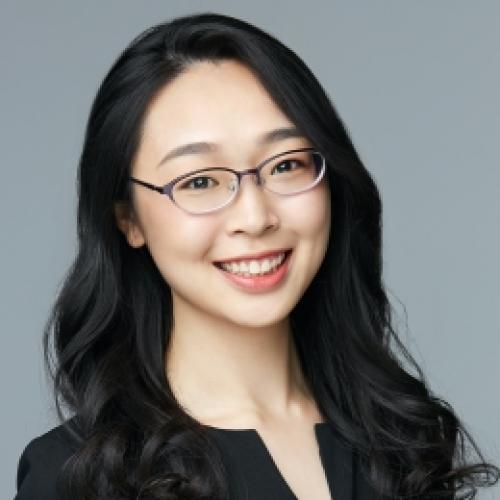
Cheng Cheng is an Assistant Professor of Sociology in the School of Social Sciences at Singapore Management University. She received her Ph.D. from Princeton University in Sociology with a concentration in Demography. Her research interests include family demography, social epidemiology, and gender inequality. Her work examines the dynamics of extended family relationships and their implications for health disparities and gender inequality. Her work has appeared in Social Science & Medicine, Journal of Marriage and Family, and International Handbook of Rural Demography.
Email: ccheng@smu.edu.sg
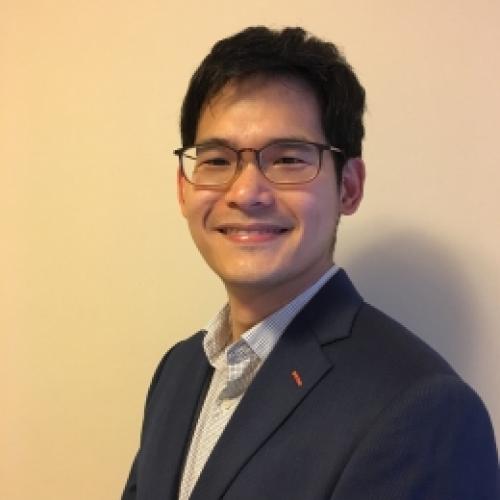
Vincent CHUA is Associate Professor in the Department of Sociology at National University of Singapore. He received his PhD in Sociology from the University of Toronto. He researches social networks paying close attention on its role in inequality reproduction. His areas include the study of education, race and neighbourhoods. His chapters and articles include: “Personal Communities: The World According to Me” (2011), “Social Networks and Labour Market Outcomes in a Meritocracy” (2011), “Categorical Sources of Varieties of Network Inequalities” (2013), “Unequal Returns to Social Capital: The Study of Malays in Singapore through a Network Lens” (2015), “Do Raffles Boys ‘Rule’ and Anglo-Chinese Boys ‘Own’ Singapore?: Analysing School-To-Work Correspondences in an Elite Development State” (2015), Social Capital in Singapore: Gender Differences, Ethnic Hierarchies, and their Intersection (2016), and Getting Ahead in Singapore: How Neighbourhoods, Gender, and Ethnicity affect Enrollment into Elite Schools (2019). He teaches modules on social capital and quantitative data analysis at NUS and is a recipient of the Faculty Excellence Teaching Awards (2013, 2017, 2018) and the University Annual Excellence Teaching Award (2018).
Email: socckhv@nus.edu.sg
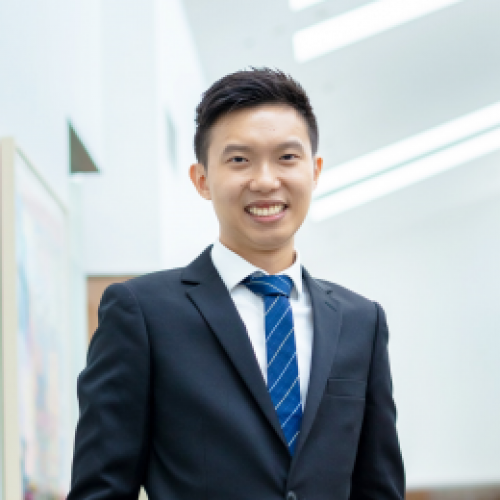
Andree Hartanto is an Associate Professor of Psychology (Education) at the Singapore Management University. His research interests lie in the field of cognitive psychology and gerontology. His current research investigates experiential and psychological factors that predict successful aging.
Email: andreeh@smu.edu.sg

Michael D. Hurd is Senior Principal Researcher and Director, RAND Center for the Study of Aging; Professor, Pardee RAND Graduate School; and Senior Research Fellow, Singapore Management University (SMU). Other research affiliations include Research Associate, National Bureau of Economic Research; Associate and Executive Committee member of the Michigan Retirement Research Center; Fellow of the Network for Studies on Pensions, Aging and Retirement in the Netherlands, and Fellow of the Munich Research Institute for the Economics of Aging. Dr Hurd holds a Master’s degree in Statistics and a PhD in Economics from the University of California, Berkeley.
Email: mhurd@rand.org
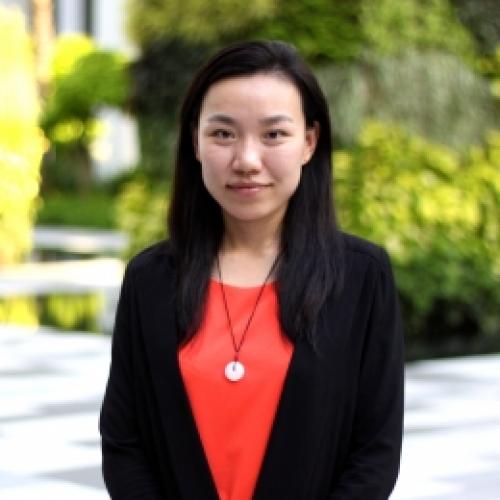
Li Jing is an Assistant Professor of Economics at Singapore Management University. Her research interests are in urban economics, health economics, and real estate finance. She has published papers in the Journal of Urban Economics, the Journal of Applied Econometrics, and Regional Science and Urban Economics. She graduated from Syracuse University in May 2013 with a PhD in Economics.
Email: lijing@smu.edu.sg
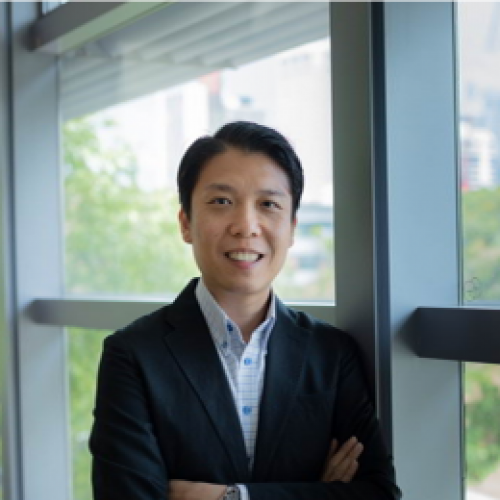
Alwyn Lim is Associate Professor of Sociology at the Singapore Management University. His research interests are in the areas of institutions and organizations, globalization, and economic sociology, where he focuses on the rise, diffusion, and impact of corporate social responsibility frameworks. He is also researching the impact of globalization on the political economy of developmental states like Singapore. Alwyn obtained his Ph.D. in Sociology from the University of Michigan, Ann Arbor.
Email: alwynlim@smu.edu.sg
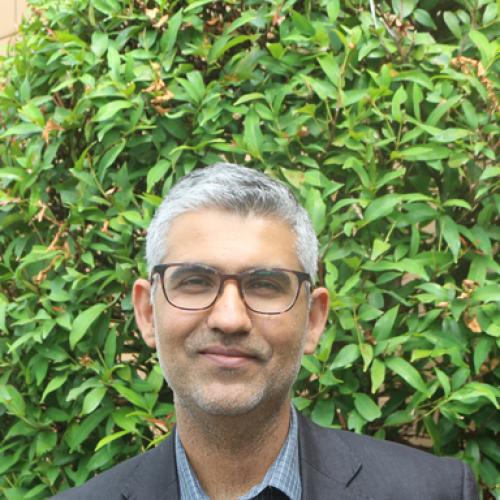
Dr. Rahul Malhotra is Assistant Professor at the Program in Health Services and Systems Research (HSSR) and Head of Research at the Centre for Ageing Research and Education (CARE) at Duke-NUS Medical School, Singapore. A physician and public health researcher, his research focuses on the vulnerability – i.e., increased risk of adverse outcomes – associated with ageing. Within this area, his research agenda is to develop an evidence base that enables understanding, measurement and alleviation of vulnerability, resulting from physical, psychological, social and health service factors, among older adults in Singapore and other Asian countries. His current funded research projects include (1) a longitudinal study of older Singaporean-family caregiver dyads (TRaCE) that aims to assess the patterns, correlates and consequences of changes in caregiving-related outcomes over time, (2) a national longitudinal survey of older Singaporeans (THE SIGNS Study) that aims to study the predictors and outcomes of change in physical, psychological and social health of older adults, and (3) a pharmacy health services research project (PROMISE) that aims to provide the evidence base for patient-centred prescription medication labels. He has authored or co-authored over 145 peer-reviewed papers in the medical and public health literature. Dr Malhotra completed his basic (MBBS) and advanced (MD in Community Medicine) medical education at the University of Delhi, India and holds a Master’s degree in Public Health (MPH) from Harvard University.
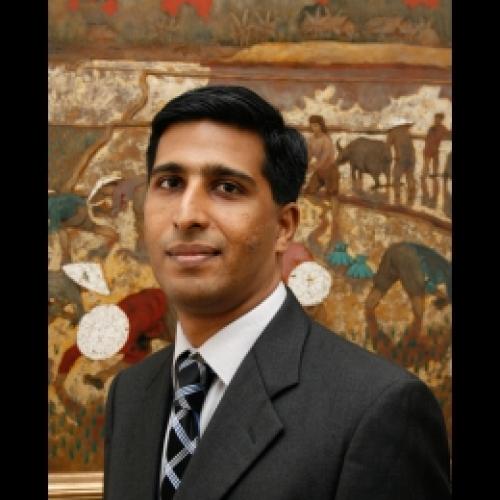
Mathew Mathews is Head of Social Lab, a centre for social indicator research and a Senior Research Fellow at the Institute of Policy Studies, Lee Kuan Yew School of Public Policy, National University of Singapore. To date, Mathews has been involved in over fifty research projects, most of them relating to issues in societal cohesion. These have included research using both quantitative and qualitative methods on areas such as race, religion, immigrant integration, family, ageing and poverty. Mathew's previous work on ageing includes the Perceptions of Ageing and Seniors Survey (together with Prof Paulin Straughan) and a study of the effectiveness of counselling for older adults. Mathews has taught courses on social policy and has published in a range of academic and media outlets.
He serves on various boards including OnePeople.sg and is on the Families for Life Council and VWOs-Charities Capability Fund Panel. He is an Adjunct Faculty of the Geriatric Research Institute and Research Advisor to the Ministry of Social and Family Development.
Email: mathew.mathews@nus.edu.sg
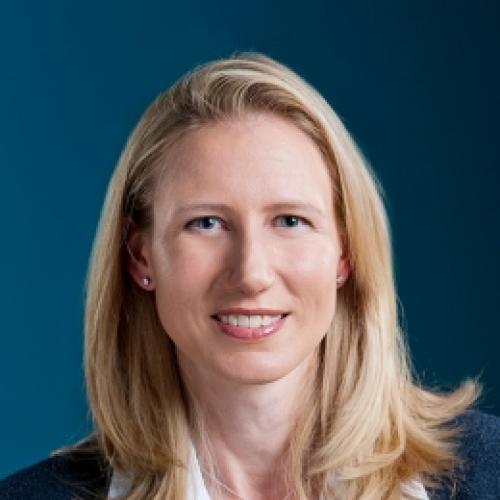
Susann Rohwedder is Senior Economist at the RAND Corporation (US), Associate Director of the RAND Center for the Study of Aging and Professor of Economics at the Pardee RAND Graduate School. She is a Senior Research Fellow at Singapore Management University (SMU). Other research affiliations include the Michigan Retirement Research Center and the Network for Studies on Pensions, Aging and Retirement in the Netherlands (NETSPAR). Dr Rohwedder holds Master’s degrees from the University of Warwick (UK) and the Sorbonne in Paris and a PhD in economics from University College London.
Email: susannr@rand.org
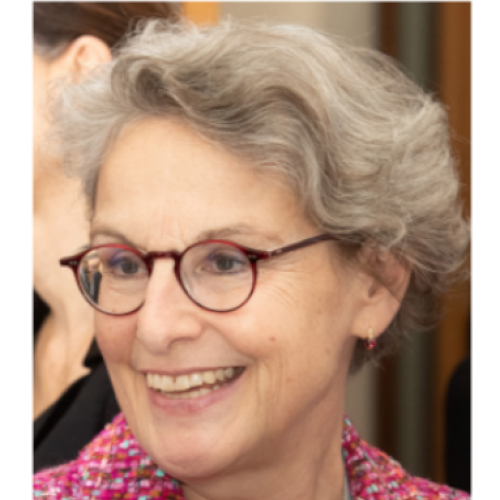
Dr. Ursula M. Staudinger is a psychologist and aging researcher. She is one of the world’s leading lifespan psychologists known for her work on the positive plasticity of aging and her research on resilience and on wisdom. Recently she has conducted groundbreaking studies to better understand the effects of work on aging. She is the recipient of the Braunschweig Research Award 2015 and of the Seneca Medal 2017. She is Professor of Sociomedical Sciences at Columbia University and was the Inaugural Director of the Robert N. Butler Columbia Aging Center. Starting in August 2020, she will be President of Technical University Dresden. Earlier in her career, she was the Dean of the Jacobs Center on Lifelong Learning at Jacobs University Bremen and Vice President of the University and started as a Group Leader at the Max Planck Institute for Human Development in Berlin. She was Vice President and Foreign Secretary of the German National Academy of Sciences and is Chair of the Board of the German Institute of Population Research. She is a Fellow of the Gerontological Society of America GSA, the American Psychological Association APA, and the Association of Psychological Science APS. She has been advising governments in different countries on questions of population aging.
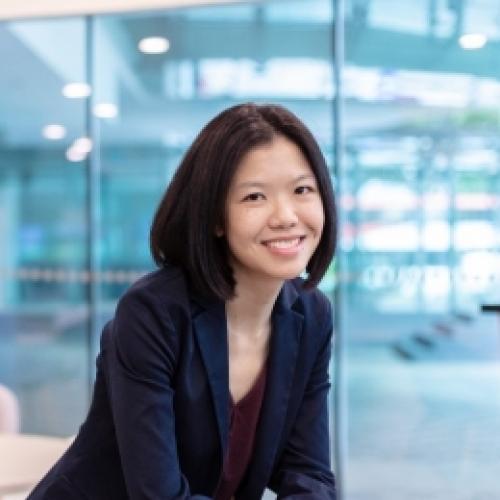
Jacinth Tan is an Assistant Professor of Psychology at the Singapore Management University, School of Social Sciences. She received her Ph.D in social psychology from the University of Illinois, Urbana-Champaign, and postdoctoral training in psychophysiology at the University of California, San Francisco. She pursues two key lines of work in her research: The first examines how social status and economic inequality shape individuals’ cognitive, behavioral, and physiological responses in social interactions. The second examines the biopsychosocial pathways that underlie socioeconomic gaps in health and well-being, as well as the psychosocial factors that can mitigate such gaps.
Email: jacinthtan@smu.edu.sg
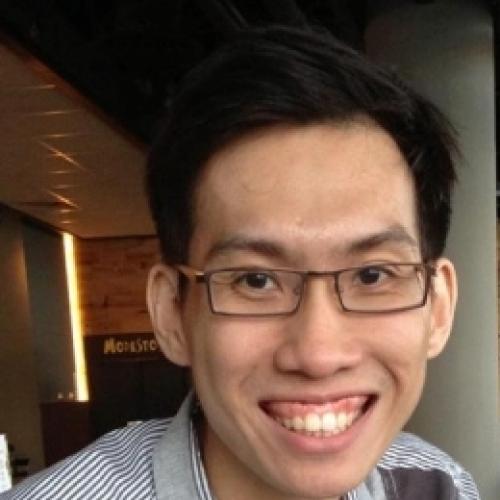
Kenneth Tan, Ph.D., is an Assistant Professor of Psychology in the School of Social Sciences at Singapore Management University. He received his Ph.D. in Social Psychology from Purdue University. His research interests revolve around close relationships, in particular commitment, partner perceptions, and relationship dissolution as well as their effects on individual and relational well-being. Current projects focus on interpersonal influence, cognitions concerning relationship goals, culture in relationships, and also singlehood. These projects involved a variety of methods to explore the complex phenomena relevant to close relationships, including questionnaires, laboratory-based experiments, longitudinal designs, and daily report studies.
Email: kennethtanyy@smu.edu.sg
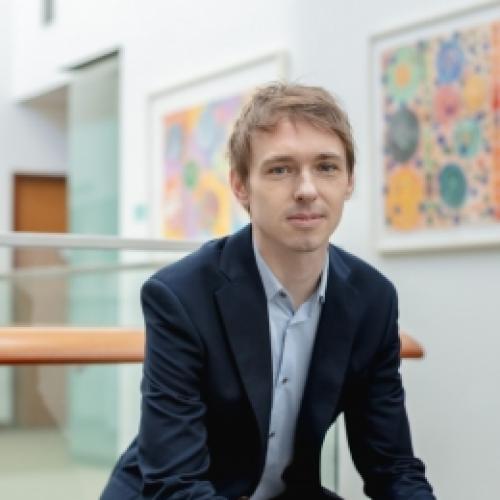
Orlando Woods is an Assistant Professor of Humanities at Singapore Management University. His research interests span religion, cities and digital cultures in Asia. A particular area of interest is how materialisations of the smart city intersect with sustainability narratives, and what this means for marginal populations therein. In this vein, his work on smart eldercare solutions in Singapore has been published in Journal of Aging Studies, Social and Cultural Geography and Sustainable Cities and Society. Orlando holds BA and PhD degrees in geography from University College London and the National University of Singapore respectively.
Email: orlandowoods@smu.edu.sg
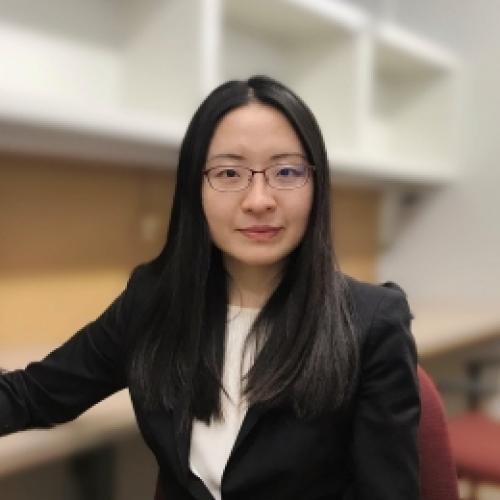
Xuan Zhang is Assistant Professor of Economics at Singapore Management University (SMU). She holds a PhD in economics from Brown University and a bachelor’s degree in economics from Renmin University of China. Her primary research fields are health economics, labor economics, and applied microeconomics with a special focus on the elderly population. She has published papers at Surgery, Annals of Emergency Medicine and Health Equity. Her current work examines the spillover effects of public health insurance programs, disruption in primary care on patient outcomes, causes of the opioid epidemic, and the economic impact of COVID-19.
Email: xuanzhang@smu.edu.sg
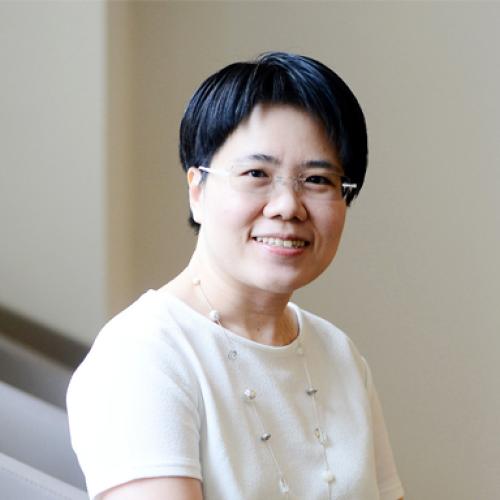
Joelle H. Fong is Assistant Professor at the Lee Kuan Yew School of Public Policy, National University of Singapore. She holds a PhD in Applied Economics from the Wharton School of the University of Pennsylvania. Joelle’s broad research agenda focuses on the economic and health aspects of population aging, and their implications for policy. Her research interests include pension economics and finance, public and private insurance markets, financial literacy and retirement, longevity risk management, and long-term care financing. Her research has been published in the Journal of Risk and Insurance, Journal of Pension Economics & Finance, Pacific-Basin Finance Journal, The Gerontologist, Health Services Research, and Journal of Aging & Social Policy. Joelle currently serves as a board member of the Singapore College of Insurance and as a member of the Steering Committee at the Next Age Institute. She was the President of the Asia-Pacific Risk and Insurance Association in 2020-2021, and also a recipient of the 2022 Social Science and Humanities Research Fellowship (Singapore). Joelle worked in the Singapore Civil Service before joining academia.
Email: j.fong@nus.edu.sg
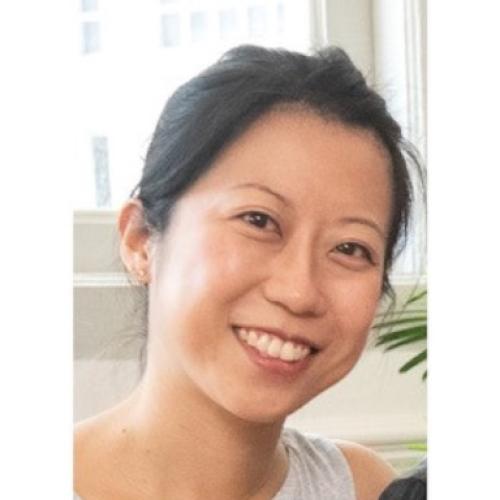
Dr Tan Shin Bin is Assistant Professor at the Lee Kuan Yew School of Public Policy, National University of Singapore. She obtained her PhD from the Department of Urban Studies and Planning, Massachusetts Institute of Technology in 2021. Her research focuses on how built environment interventions and public policy can improve social and health equity. Previously, she worked as an urban planner at the Urban Redevelopment Authority of Singapore.
Email: shinbin@nus.edu.sg
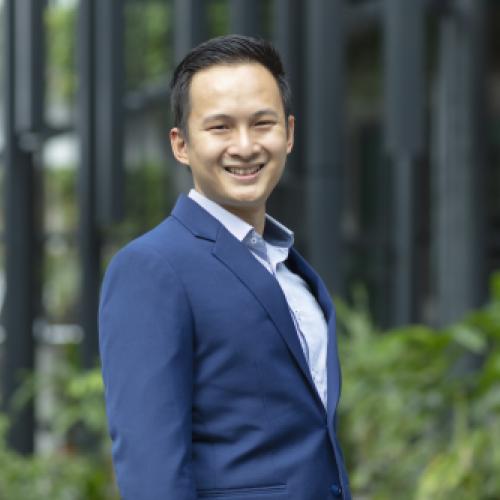
Nathan’s research is dedicated to alleviating poverty and inequality in Southeast Asia, with a focus on Singapore and Indonesia. He studies how political, social, and economic forces interact to determine how countries deal with poverty and inequality, the impacts of these, and how they shape economies’ long-term developmental potential. Employing both quantitative and qualitative methodology, he chooses between different tools like interviews, geospatial analysis, clustering, and various regression techniques, depending on the research question. Prior to his academic calling, he spent five years in public policy working on similar issues of economic strategy, helping the less privileged, and lowering inequality at the Ministry of Trade and Industry and the Ministry of Social and Family Development in Singapore.
Email: nathanpeng@smu.edu.sg
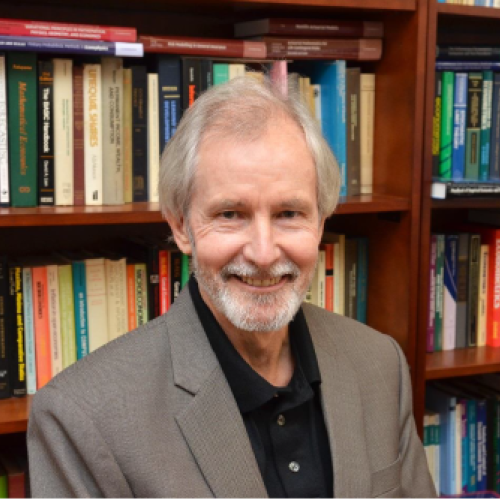
Peter C. B. Phillips is Sterling Professor Emeritus of Economics at Yale University, Distinguished Professor at the University of Auckland, and Distinguished Term Professor at Singapore Management University. He is Founding Editor of the journal Econometric Theory and an elected fellow of many learned societies including the British Academy, the American Academy of Arts and Sciences, the Royal Society of New Zealand, the Institute of Mathematical Statistics, and the Econometric Society. His works on finite sample theory, continuous time modeling, trending time series, unit roots, financial bubble detection, and partially identified models have subsequently developed into major fields of scientific inquiry and influenced applied research throughout the social sciences. Peter is a Thomson Reuters Citation Laureate and recipient of the New Zealand Medal of Science and Technology. Google scholar citations of his work exceed 110,000. He has an extended family fellowship of more than 100 Ph.D students many of whom are now prominent econometricians.
Email: peter.phillips@yale.edu
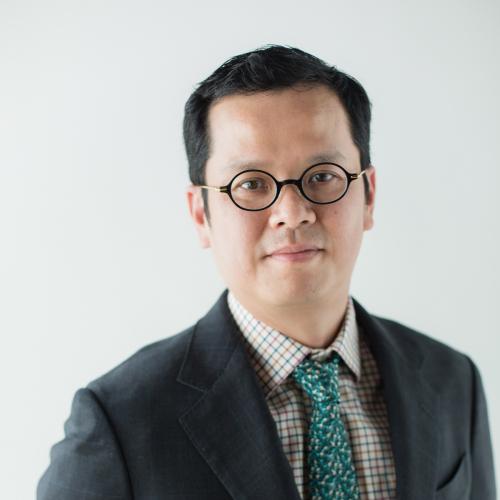
Tang Hang Wu is a Professor at the Yong Pung How School of Law and Associate Provost (Research Governance) at Singapore Management University. He works on property, trust, nonprofit law and is interested in issues such as safeguarding property rights of persons with special needs and older persons and adult guardianship regimes such as lasting powers of attorneys and court appointed deputies.
Email: hwtang@smu.edu.sg